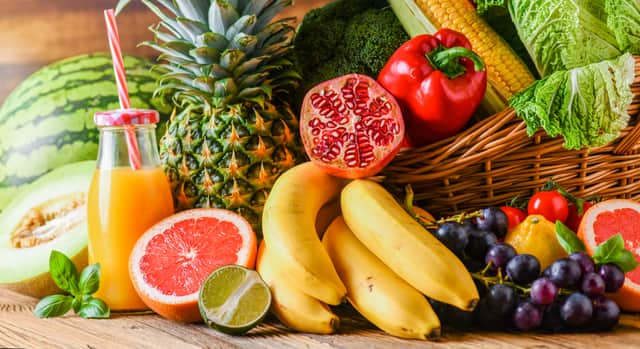Here's what you should be eating to lower your risk of having a stroke


The risk of suffering from any form of stroke could be reduced through eating more fibre, according to a new study.
Scientists observed how food related to two major types of stroke – ischaemic strokes, which are caused by blockages causing a cutting off of blood supply to the brain, and haemorrhagic strokes (when a bleed on the brain damages surrounding cells).
Advertisement
Hide AdAdvertisement
Hide AdA major study of 418,329 people suggested that a higher intake of dietary fibre could be linked to a decreased risk of ischaemic stroke. The study, published in the European Heart Journal, also suggested eating more eggs could be linked to a higher risk of suffering a haemorrhagic stroke.
Researchers from the University of Oxford looked at what people from nine European countries said they ate over a typical year.
Those who ate lots of fibre were less likely to have a stroke
The most significant results showed that those who ate lots of fibre, along with fruit and vegetables, were significantly less likely to have a stroke.
But the study also suggests dairy foods may be important, although opinion is divided on this, since their high saturated fat content has been said to make the food group bad for the heart.
Advertisement
Hide AdAdvertisement
Hide AdDr Tammy Tong, the first author on the study and a nutritional epidemiologist at the Nuffield Department of Population Health, University of Oxford, said, "The most important finding is that higher consumption of both dietary fibre and fruit and vegetables was strongly associated with lower risks of ischaemic stroke, which supports current European guidelines.
"The general public should be recommended to increase their fibre and fruit and vegetable consumption, if they are not already meeting these guidelines.”
Participants provided details on their diet, lifestyle and medical history as part of a questionnaire, with researchers following up with them for an average of 12 years.
Over the period, 4,281 cases of ischaemic stroke and 1,430 cases of hemorrhagic stroke were recorded.
No significant association to haemorrhagic strokes
Advertisement
Hide AdAdvertisement
Hide AdHowever while higher intakes of fruit, vegetables, fibre, milk, cheese or yoghurt were linked to a lower risk of ischaemic stroke, there was “no significant association” with the foods to haemorrhagic strokes.
When it came to ischaemic strokes, every 10 gram increase in the intake of fibre a day was associated with a 23 percent lower risk, according to researchers. The study also showed that 200g of fruit and vegetables a day appears to cut the risk of an ischaemic stroke by 13 per cent.
However, on the negative end of the spectrum, every extra 20g of eggs consumed a day was linked to a 25 per cent higher risk of haemorrhagic stroke.
Professor Naveed Sattar, from Glasgow University who did not take part in the research, said, "We know fibre is linked strongly to a reduced risk of stroke, but the evidence for dairy foods is still limited, so we need proper studies on this."